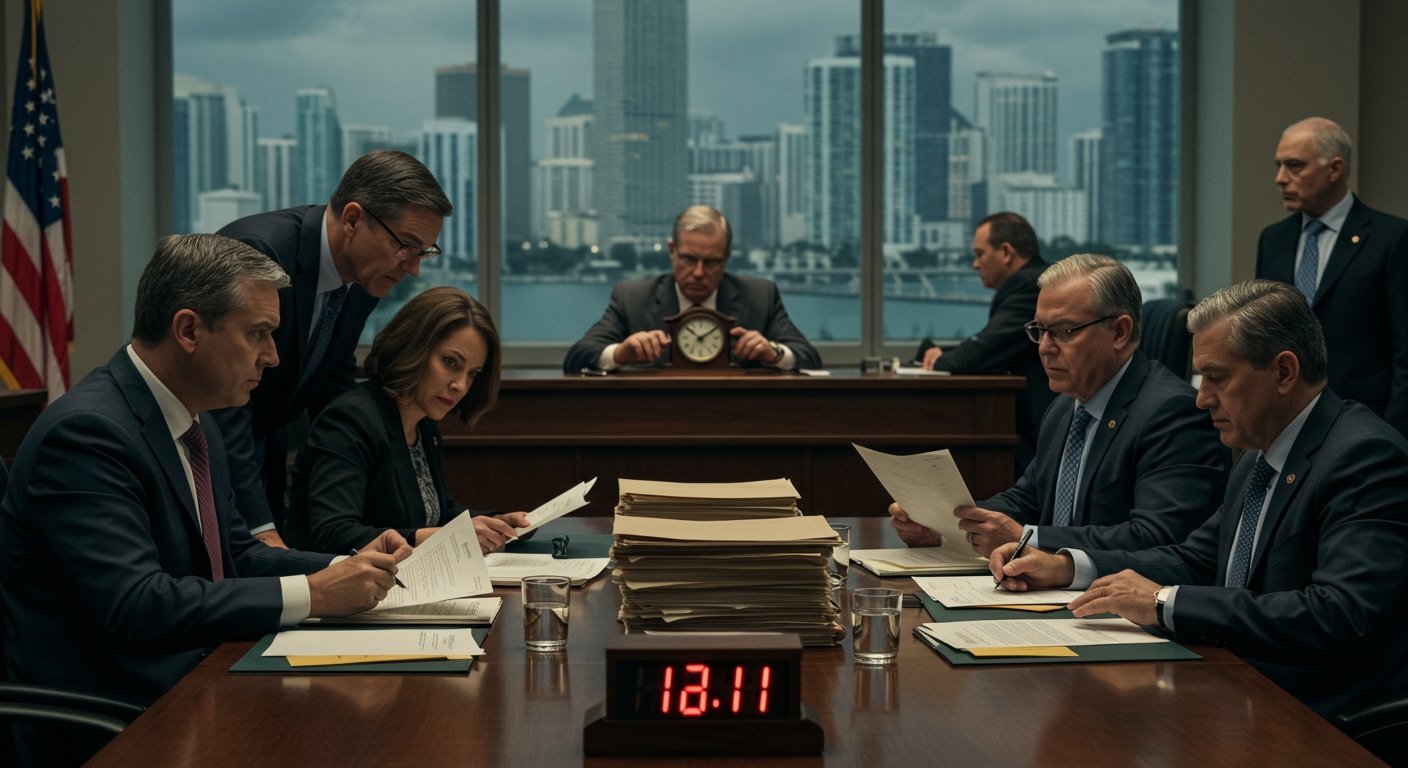MIAMI, Florida – The City of Miami stands at a critical juncture as its City Commission prepares for a final vote on Thursday, June 26, 2025, on a controversial proposal to shift municipal elections from odd to even years. This potential change, which narrowly passed its first reading on June 17 with a 3-2 vote, carries significant implications for the city’s political landscape, potentially extending the terms of current officeholders and drawing sharp warnings from the state’s top legal official.
The proposed legislation aims to postpone the upcoming November 2025 municipal elections to November 2026. If approved, this delay would effectively lengthen the terms of the incumbent mayor and city commissioners by one year, a consequence that has fueled intense debate and opposition.
The Commission’s Divide
The initial vote on June 17 revealed a clear division within the five-member commission. Commissioners Damian Pardo, Ralph Rosado, and Christine King cast their votes in favor of advancing the measure. Their support secured the crucial first approval needed for the proposal to move forward to the final reading.
Conversely, Commissioners Miguel Angel Gabela and Joe Carollo voted against the change. Their opposition highlights the deep disagreements surrounding the proposal’s merits and potential ramifications, particularly concerning the extension of current terms.
Attorney General’s Warning
The contentious nature of the proposal was underscored by a direct intervention from Florida Attorney General James Uthmeier. On Wednesday, June 25, just a day before the scheduled final vote, Attorney General Uthmeier issued a stern warning to the commissioners.
His communication cautioned the commission against altering the established election dates, explicitly stating that such a move could face significant legal repercussions. He advised the commissioners to halt the process, raising serious questions about the legality and propriety of extending terms through a legislative change rather than through the electoral process.
Arguments for the Change
Despite the legal cautionary notes and political opposition, proponents of the shift argue for its strategic benefits. Commissioner Damian Pardo, who sponsored the legislation, articulated key justifications for moving the election to 2026.
According to Commissioner Pardo, consolidating municipal elections with state and federal contests held in even years would result in substantial financial savings for the City of Miami. He estimated the savings could exceed $1 million by avoiding the costs associated with conducting a standalone municipal election in 2025.
Furthermore, Commissioner Pardo suggested that holding elections concurrently with larger contests could potentially increase voter turnout, although this was not the primary stated justification. He also posited that moving the election could prevent potential legal challenges, a claim that appears counter to the warning issued by the Attorney General.
Mayor Francis Suarez has also publicly expressed his support for the proposed election date change, aligning himself with Commissioners Pardo, Rosado, and King on this matter.
Related Reforms and Broader Context
Notably, the June 17 commission meeting also saw the initial approval of another significant reform proposal: establishing term limits for the mayor and city commissioners. This proposed amendment also requires a second approval by the commission and, critically, voter approval before it can be enacted.
The consideration of term limits alongside the election date change adds another layer of complexity to the ongoing discussions about governance and representation in Miami. While distinct issues, both reflect a broader conversation about the structure and timing of democratic processes within the city.
If the election date change is ultimately approved on June 26, Miami would join a growing number of major American cities holding municipal elections in even years. According to the provided data, Miami would become the 40th city among the 100 most populous U.S. cities to adopt this electoral schedule. This shift reflects a national trend towards aligning local elections with larger state and national cycles, often cited for potential cost savings and increased voter engagement, though also facing criticism for diluting focus on local issues.
Looking Ahead
The final vote on Thursday, June 26, 2025, is poised to be a pivotal moment for Miami’s governance structure. The commission’s decision will not only determine the immediate future of the city’s electoral calendar but also test the boundaries of its legislative authority in the face of legal warnings and public scrutiny. The outcome will likely be closely watched by residents, political observers, and legal experts alike.





